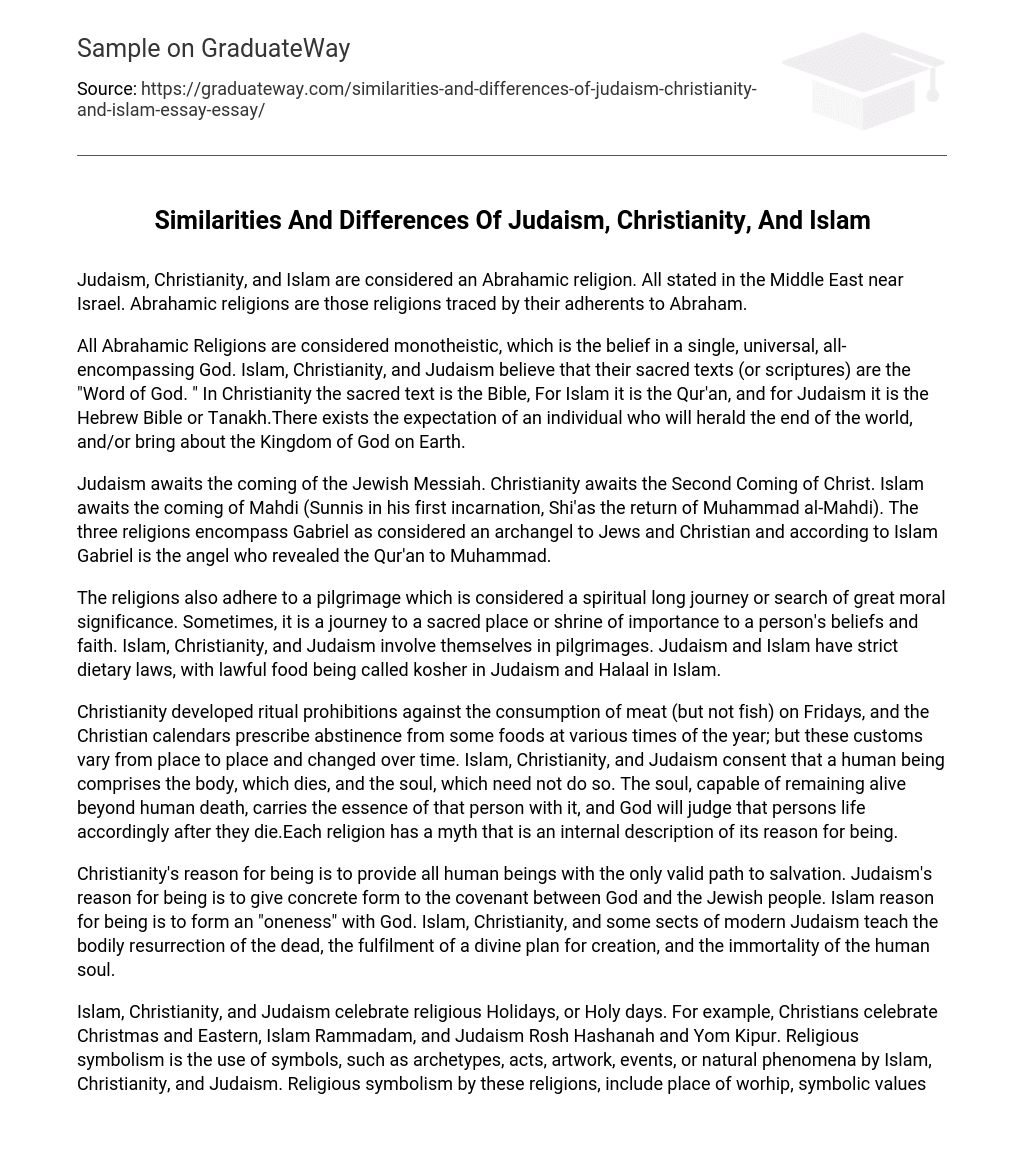Judaism, Christianity, and Islam are Abrahamic religions originating from the Middle East, specifically near Israel. The adherents of these religions share a belief in tracing their origins back to Abraham.
Islam, Christianity, and Judaism are monotheistic religions that share the belief in one God. They each regard their sacred texts as the direct word of God: Christianity adheres to the Bible, Islam adheres to the Qur’an, and Judaism adheres to the Hebrew Bible or Tanakh. Furthermore, all three religions hold the belief that a figure can arise to bring about the end of the world and establish God’s Kingdom on Earth.
The three major Abrahamic religions – Judaism, Christianity, and Islam – share a common expectation of the arrival of a significant figure. This figure is known as the Jewish Messiah in Judaism, the Second Coming of Christ in Christianity, and Mahdi for both Sunnis and Shi’as in Islam. However, while Sunnis believe in his initial appearance, Shi’as await the return of Muhammad al-Mahdi. In all three religions, Gabriel holds a pivotal role as he is recognized as an archangel by Jews and Christians. Moreover, in Islam, Gabriel is acknowledged as the angel who revealed the Qur’an to Muhammad.
The religions of Islam, Christianity, and Judaism all participate in pilgrimages as significant spiritual journeys. These pilgrimages typically involve visiting sacred places or shrines that hold great importance within one’s faith. Both Judaism and Islam adhere to their own dietary regulations; kosher is followed in Judaism while Halaal is observed in Islam.
Christianity implemented rules that prohibited the eating of meat on Fridays while permitting the consumption of fish. Additionally, Christian calendars designated specific periods throughout the year for abstaining from particular foods. Nevertheless, these traditions varied among different regions and changed over time.
Islam, Christianity, and Judaism all acknowledge the dual nature of humans, consisting of a mortal body and an immortal soul. The soul possesses everlasting existence beyond physical death and embodies one’s true essence. When individuals pass away, God will evaluate their lives based on their souls.
Each religion possesses its own distinct myth that offers an internal explanation for its origin.
Christianity aims to provide salvation for all individuals, while Judaism emphasizes the covenant between God and the Jewish people. Conversely, Islam strives for unity with God. These three religions – Islam, Christianity, and certain branches of Judaism – share teachings such as belief in bodily resurrection, fulfillment of God’s plan for creation, and the immortality of the soul.
Islam, Christianity, and Judaism all have their own religious Holidays or Holy days. Christians celebrate Christmas and Easter, Islam observes Ramadan, and Judaism commemorates Rosh Hashanah and Yom Kippur. These religions incorporate religious symbolism through archetypes, acts, artwork, events or natural phenomena. Examples of religious symbolism in these religions include the designated place of worship, symbolic meanings attached to numbers, metals and minerals, colors, as well as the symbolic visions experienced by the Prophets.





